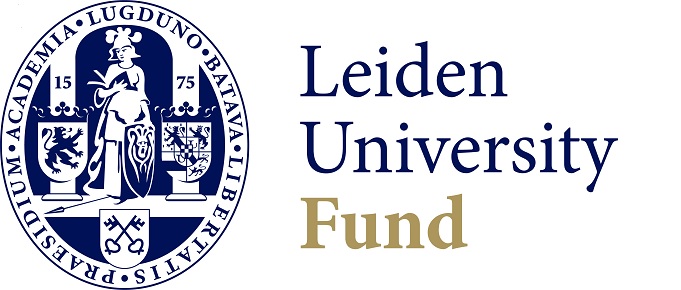
Rombouts Fund makes purchase extraordinary Chinese manuscript possible
Leiden University Libraries (UBL) has been able to acquire an extraordinary Chinese manuscript at auction in Hong Kong. It concerns an Imperial Edict (dated 1582) from the Ming dynasty period, at one time part of the former collection of well-known sinologist and author of detective-novels Robert van Gulik. The purchase was made possible thanks to a contribution from the Rombouts Fund for Chinese Special Collections, a named fund at LUF, and support from the UBL Friends Foundation.
Imperial edict
With edicts like these, Chinese emperors issued rulings, such as about the appointment or promotion of officials, or as a token of gratitude for services rendered. These documents were usually written on a stretch of silk and handed to the person involved. The now acquired edict praises the parents of Zhao Fan, an official with a particularly good reputation. The emperor praises Zhao’s father, his deceased first wife and Zhao’s mother. They ensured the proper education of their son, and therefore deserved this acknowledgement. The imperial edict, calligraphed on silk, was preserved in a reasonably good state and bears Robert van Gulik’s seal. The edict is now being examined by UBL conservator Karin Scheper, who will be preserving the fragile object in cooperation with textile conservator Sjoukje Telleman.
'Up until now, we only possessed a few edicts from the late Qing dynasty (1644-1911),' according to curator Marc Gilbert, 'but we didn’t have a Ming dynasty (1368-1644) edict yet. Few edicts from this period have survived and they are only seldom available on the market. This was an excellent opportunity to bridge this gap in the Leiden collections. It enables researchers in the Netherlands and abroad to study Chinese imperial governance using original source material. The origins of this manuscript make this acquisition even more special, as the edict was part of Robert van Gulik’s private collection. This collection is now a prominent part of the UBL Chinese collections.'
Rombouts fund for Chinese collections
The acquisition of the edict was made possible by Piet Rombouts, who worked in China for many years. This Leiden University alumnus also decided to start a new named fund with the Leiden University Fund. The Rombouts Fund for the Chinese collections at the Leiden University Libraries intends to continue to enable the UBL to make important acquisitions, to further stimulate education and research into the history and culture of China. The founder of the fund, alumnus Piet Rombouts, worked in China for many years.
Chief Curator Garrelt Verhoeven is delighted with the unexpected donation: 'The Chinese collections are an important part of the Leiden Special Collections. There is no other library in the Netherlands with a similar focus on this region. China is a growing power on the global stage, and it is important that we take notice of, and gather knowledge about, Chinese culture and identity through the centuries. We focus on cultural heritage, building on Robert van Gulik’s work, but also seek sources through which contemporary subcultures can be studied. With Piet Rombouts’ generous support, we can make this ambition reality, like with the acquisition of this imperial edict.'
Unboxing the edict
This video can not be shown because you did not accept cookies.
You can leave our website to view this video.Robert van Gulik
For most, the name Robert van Gulik (1910-1967) is inextricably connected to the popular series of detective-stories about the historic figure Judge Dee. In the 1950s and 1960s, Van Gulik, himself, wrote a series of stories about the historic figure Judge Dee, gaining worldwide popularity and acclaim. Lesser known is the fact that Van Gulik was able to obtain a phenomenal collection of Chinese historical and cultural documents over the span of his short life. His work as a diplomat in China and at other Asian postings enabled him to collect thousands of manuscripts, books, pieces of music, paintings, and calligraphies.
His library reflects his broad interests, with unique calligraphy manuscripts, rare prints, and printed art, although his attention was peaked just as much by gastronomy and erotica. This last category could be found on the ‘locked shelf’ at the Leiden Sinological Institute, which acquired Van Gulik’s library in 1977, after his untimely death in 1967.

Chinese studies in Leiden
The collection is held at the UBL as a source for Chinese studies education and research at Leiden University. Collections that are – up until today - regularly enriched and expanded with new acquisitions. Maghiel van Crevel, for example, donated his collection of Chinese poetry magazines from the People’s Republic to the UBL in 2006. This unique collection of unofficial publications published after the Cultural Revolution, from the latter part of the 1970s onwards, is a ‘living’ collection, which is kept up to date regularly.
The acquisition of the imperial edict immediately satisfies a demand from the burgeoning Leiden University Chinese studies department. In the coming three months, three students will start working on the manuscript, guided by Professor Hilde De Weerdt (Chinese History), University Lecturer Lin Fan (Chinese Art) and curator Marc Gilbert. They will focus on the preservation, conservation of the object and its historical context, and will translate the text. Their findings will be published later this year.

Perhaps you are considering setting up a named fund yourself or making a contribution to an existing fund. For more information, please contact Juliette Nieuwland either by email at j.m.m.nieuwland@LUF.leidenuniv.nl or by phone at +31 71 527 3327.
